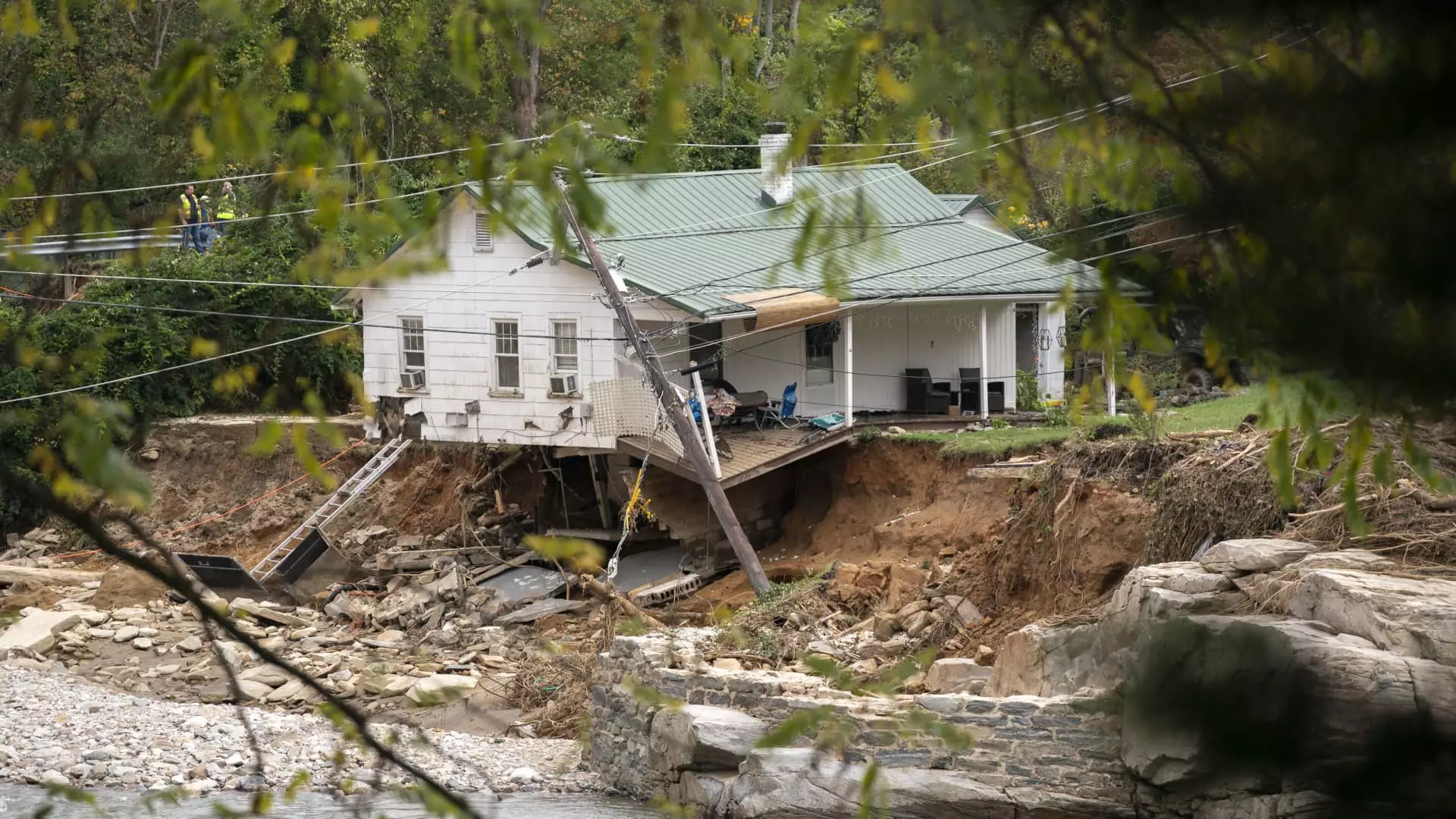Hurricane Helene has brought to light the dire consequences of inadequate insurance coverage when it comes to natural disasters. The estimated insured losses surpass $6 billion, yet the full scale of financial devastation is far more profound due to considerable uninsured losses. This discrepancy highlights a significant problem: many homeowners, especially in North Carolina, find themselves without the crucial flood insurance required to protect their assets from severe weather incidents. In the aftermath of Helene, it has become increasingly clear that traditional models of risk assessment must evolve to align with the current realities of climate change.
A contributing factor to the lack of flood insurance in North Carolina is the misguided reliance on FEMA-designated flood zones. Government-backed mortgages necessitate insurance only in these areas, which encompass a mere 4% of homes in the state. This narrow scope leaves a substantial majority of property owners unaware of their exposure to flood risks. Companies like First Street are addressing this gap by utilizing advanced risk-assessment technology that integrates climate change projections into their evaluations. By revealing that nearly 12% of North Carolina homes are actually at risk of flooding, they challenge the conventional wisdom surrounding flood zones and insurance needs.
In a groundbreaking approach, First Street has introduced a suite of climate risk data accessible through listings on platforms like Zillow. This innovative move provides potential buyers and sellers with essential information tailored to individual properties. As purchasers become increasingly aware of the impacts of climate risks such as flooding, wildfires, and extreme weather, the importance of transparent, property-specific data cannot be understated. Skylar Olsen, Zillow’s chief economist, emphasizes that savvy buyers now prioritize climate risk in their decision-making process, making it integral to negotiations between real estate agents and clients.
The Futuristic Lens on Property Risk
Zillow’s listings now display risk scores for various climate threats, including floods and wildfires, projected across critical timeframes of 15 to 30 years—key periods for fixed-rate mortgages. As homeowners consider these metrics, they can gauge the likelihood of increased risk over time, a major concern as climate change continues to exacerbate severe weather patterns. The elevated flood risk, in particular, serves as a stark reminder that a home’s safety is not guaranteed merely by its designation on a FEMA map.
Shifting Attitudes Toward Climate Risk
A recent survey from Zillow indicates a remarkable shift in buyer sentiment regarding climate risk, with over 80% of respondents acknowledging its significance in their purchasing decisions. Flood risk emerged as the top concern, indicating that potential homeowners are increasingly factoring in environmental variables when assessing property value. Moreover, an analysis of August property listings confirmed that the prevalence of major climate risks has intensified over the past five years. With 16.7% of new listings facing considerable wildfire risk and 12.8% shown to be at major flooding risk, it is evident that these trends are reshaping the real estate landscape.
As awareness of climate-related risks rises, the ramifications for home values are inevitable. The escalating cost of insurance coverage, particularly in areas deemed high-risk, will likely be reflected in real estate pricing. Kearns notes that the correlation between quantifying risk and home values could be profound, suggesting that properties with higher associated risks may experience depreciation as insurance demands increase. This transformation underscores the urgent need for both buyers and sellers to adapt to a market that is increasingly defined by the realities of climate change.
The aftermath of Hurricane Helene serves as a crucial reminder of the need for educated consumer choices when it comes to insurance and home purchasing. The evolving landscape of risk assessment tools, spearheaded by firms like First Street, provides invaluable insights that can help mitigate the financial devastation associated with unforeseen natural disasters. As climate risks remain an omnipresent consideration for property owners, the integration of comprehensive risk data into the real estate sector is not merely beneficial; it is essential for fostering informed decision-making for future homeowners.

Leave a Reply